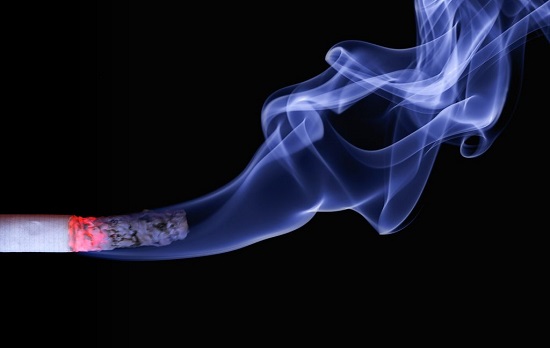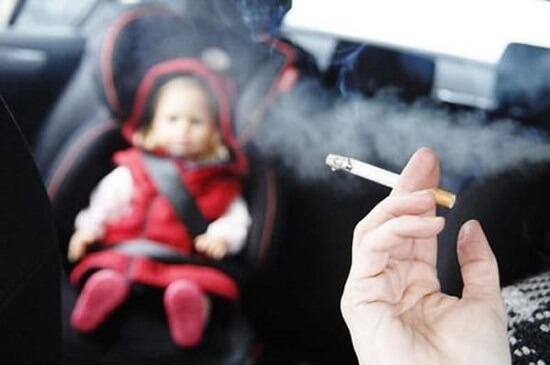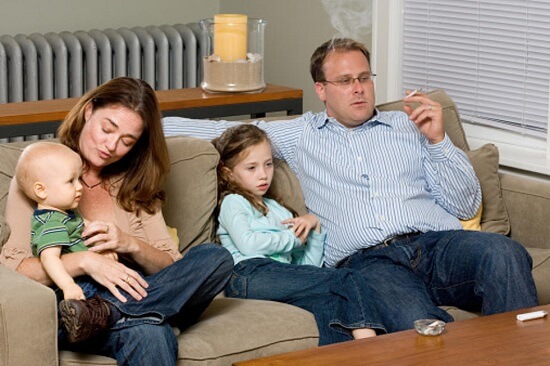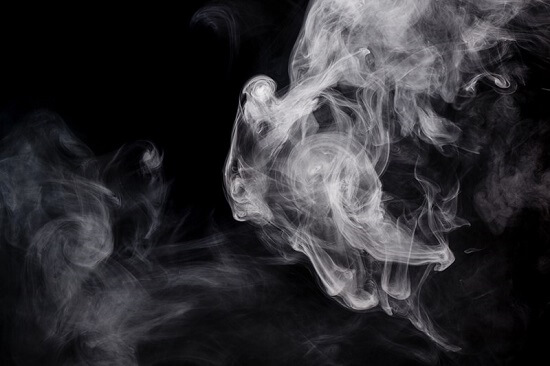Here are some second-hand smoke facts you must know if you smoke or is surrounded by smokers! Read the article to know how it can affect you, your family, or even an unborn fetus!
What is Passive Smoking?
Passive smoking refers to the act of inhaling the smoke from a cigarette or other tobacco products being used by other people. It can increase the risk of cancer, stroke, and lung diseases even if you don’t smoke yourself. The smoke from tobacco products travel through the air and lingers. It can even stay on the surfaces of things and even clothes.
Harmful Effects Of Inhaling Second-Hand Smoke
While passive smoking can affect every age group, it is potentially dangerous for children. Children with higher intake of passive smoke are more exposed to respiratory infections. A parent who smokes indoors give rise to a smoke cloud in the atmosphere, which the other members have to breathe anyhow. Some of the many health risks might include:
- If a child surrounds a smoking household for the first 18 months, there’s a strong possibility of developing respiratory complications. This is because their lungs are weaker and do not grow to their full capacity. Also, they are often exposed to coughs, colds, and middle ear infections.
- School going children might develop coughs, phlegm, wheeze, and may find difficulty in breathing.
- Passive smoking also increases the risk of meningococcal disease, which can even lead to death or cause some disability.
According to the CDC, tobacco smoke contains more than 7,000 chemicals, including hundreds that are toxic and about 70 that can cause cancer. Also, the leading health authorities have blamed second-hand smoke a major cause of lung cancer in humans.
Our eyes, nose, throat, and lungs are likely to get irritated by sulfur and ammonia. A cigarette is a combination of addictive drugs and other harmful components, which worsens the respiratory conditions. Prolonged exposure to passive smoking can trigger harmful situation for people with bronchitis or asthma.
How it Effects Babies and Pregnant women and The Fetus
If you’re pregnant and smoking a cigarette daily, you are posing a strong threat to the life of your fetus. Both smoking and passive smoking leaves a serious impact on the development of a fetus inside the mother’s womb. Women who smoke are at greater risk of ectopic pregnancy. Other effects smoking might have on pregnant women are:
- Miscarriage
- Premature Birth
- Students unexpected death in infants (SUDI), which includes sudden infant death syndrome (SIDS) and fatal sleep accident.
How to Reduce The Risk Of Passive Smoking To Family
If you’re unable or even unwilling to quit smoking, there are multiple measures you can adopt to protect your family’s health at least:
- If you have an urge to smoke, limit it to the outdoors. Even if you think that you’ll smoke in your room and nobody else will be affected, you’re wrong. Smoke from tobacco can pass through the rest of the house in no time.
- Make sure to provide your children with a smoke-free environment indoors as well as outdoors.
- Never let your kids access your cigarette pack especially teenagers. It can tempt them to start smoking as well.
- Ask your visitors to smoke their cigarettes outdoors prior to entering your home.
Less Well Known Second-Hand Smoke Facts!
As an addition to the number of risks, these days researchers claim that passive smoking can even lead to multiple sclerosis and depression. Passive smokers are seen to develop symptoms of such conditions due to prolonged exposure to inhaling second-hand smoke.
Preventing Passive Smoking!
There are laws about smoking in public places, which mostly forbids smokers to smoke in public. Still, there are places where publicly smoking still needs to be regulated. So, there are things you might do to limit your exposure to second-hand smoke.
- Be rigid and never allow people to smoke inside your home or even cars. Stay away from tobacco smokes as much as you can.
- If you smoke, quit it for the sake of your children and be a good role model. Besides, instruct them to avoid passive smoking as well.
- Avoid dining in the restaurant which allows smoking indoors.
- If you happen to see a smoker nearby, cover your mouth and nose with a handkerchief and move away from them quickly.
- Never allow your friends to smoke when you’re around and even ask them to quit smoking for their own benefit.
Residual Smoking Odors
Particles from smoke may settle on your clothes or on surfaces around and remain there for a long time. Although, there’s no specific research to show whether the residue smoke causes cancer or not. And even though it might no longer be smoke, it can be thirdhand smoke or residual tobacco smoke. These particles are seen to combine with the gases in the air and form carcinogenic compounds. Yet they are not as dangerous as direct inhalation of second-hand smoke.
- Passive smoking occurs when a non-smoker inhales smoke emitted by other people through tobacco products.
- Long-tern exposure to passive smoking can increase the risk of heart diseases and lung cancer.
- Try to avoid smoking during or even after pregnancy.
- Move out of a place where a person is smoking, especially if it’s an enclosed premise as it can lead to suffocation.





